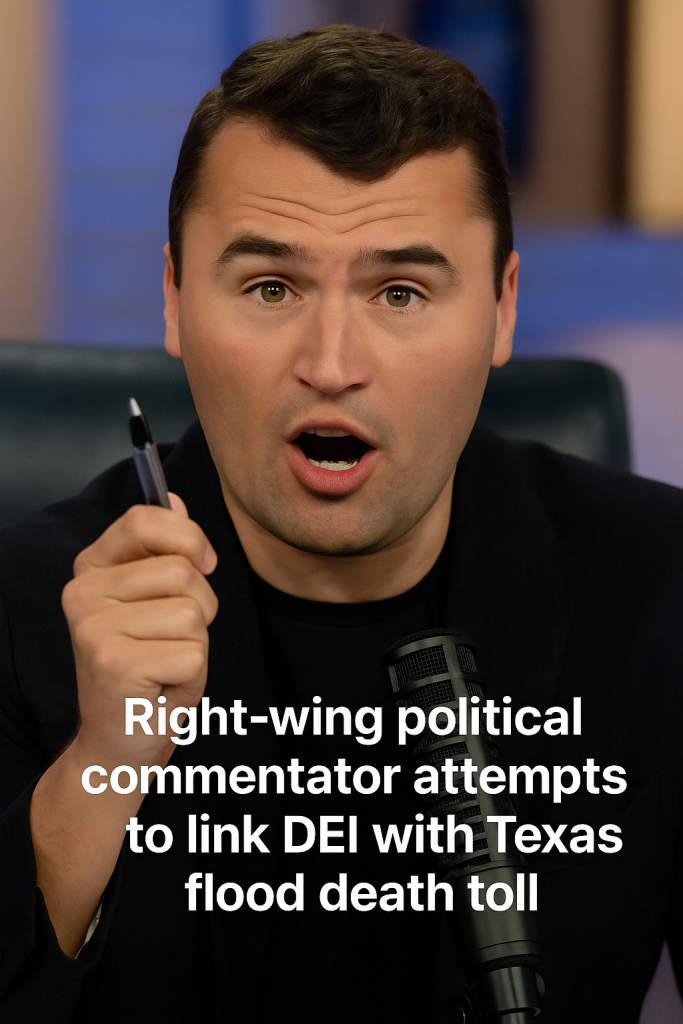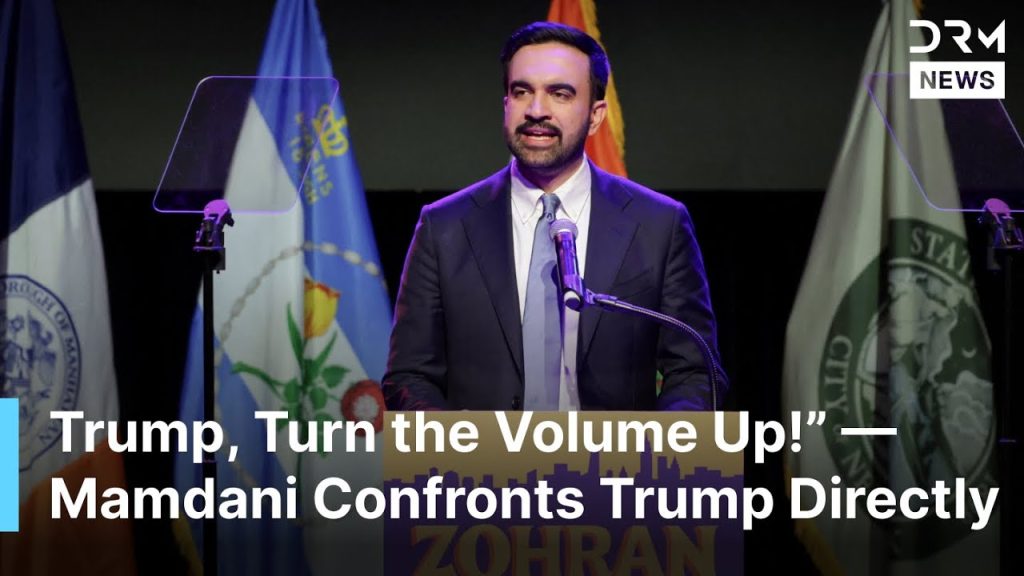A recent and controversial statement by a prominent right-wing political commentator has ignited widespread debate and condemnation after they claimed that the tragic death toll from the devastating Texas flooding could have been lower if not for the influence of diversity, equity, and inclusion (DEI) policies.
The statement, made during a live broadcast last week, alleged that DEI initiatives somehow undermined effective emergency response and disaster management, suggesting these policies prioritized social agendas over critical safety procedures. The commentator asserted that if organizations and government agencies had focused less on DEI principles, fewer lives would have been lost during the severe weather event that swept parts of Texas earlier this year.
This claim quickly spread across social media platforms, accompanied by an image featuring the commentator and a bold text banner reading, “Bulletin: Right-wing political commentator attempts to link DEI with Texas flood death toll.” The image has been widely shared, sparking heated conversations across the political spectrum.
Context of the Texas Flooding
Texas experienced one of its most severe flooding events in recent history earlier this year, resulting in significant property damage, displacement of thousands, and a heartbreaking number of fatalities. The flooding was caused by a series of intense storms, overwhelming rivers and drainage systems. Emergency services and first responders were stretched thin but worked tirelessly to assist affected communities.
Authorities and experts have attributed the high death toll primarily to uncontrollable natural elements, infrastructure challenges, and emergency response logistics complicated by the scale of the disaster. There has been no credible evidence connecting the effectiveness of emergency measures to DEI policies.
DEI and Disaster Management: Separating Fact from Fiction
DEI initiatives generally focus on promoting fairness, representation, and equal opportunity across various sectors, including workplaces and public services. Advocates argue that inclusive policies can improve crisis response by ensuring diverse communities receive adequate attention and resources tailored to their needs. Critics of the commentator’s remarks have highlighted how these initiatives are designed to enhance, not hinder, public safety efforts.
“Linking DEI to the flood deaths is not only unfounded but insensitive to the victims and responders,” said a disaster management expert who asked to remain anonymous. “Good emergency planning considers all community members. Inclusion can strengthen outreach and recovery, especially to marginalized groups.”
The commentator’s remarks have drawn sharp criticism from political figures, community leaders, and social justice advocates who condemn the statement as divisive and distracting from the pressing need to address climate-related disasters and infrastructure resiliency.
Public and Political Fallout
Several organizations and public officials have called for more constructive dialogue around disaster preparedness and investment in resilient infrastructure. They argue that using tragedies to advance political points, especially with highly questionable claims, detracts from the urgent discussions needed to mitigate future risks.
Meanwhile, the commentator’s supporters defend their right to question prevailing narratives but have not provided concrete evidence to support the connection between DEI policies and the Texas flood death toll.
As Texas continues the long recovery from the floods, amidst growing concerns about extreme weather events fueled by climate change, experts emphasize the importance of focusing efforts on scientifically-backed solutions, community engagement, and inclusive emergency planning.
Ultimately, the controversy underscores the challenges of navigating complex social issues in an increasingly polarized media environment, where even natural disasters become fodder for politicized claims.



